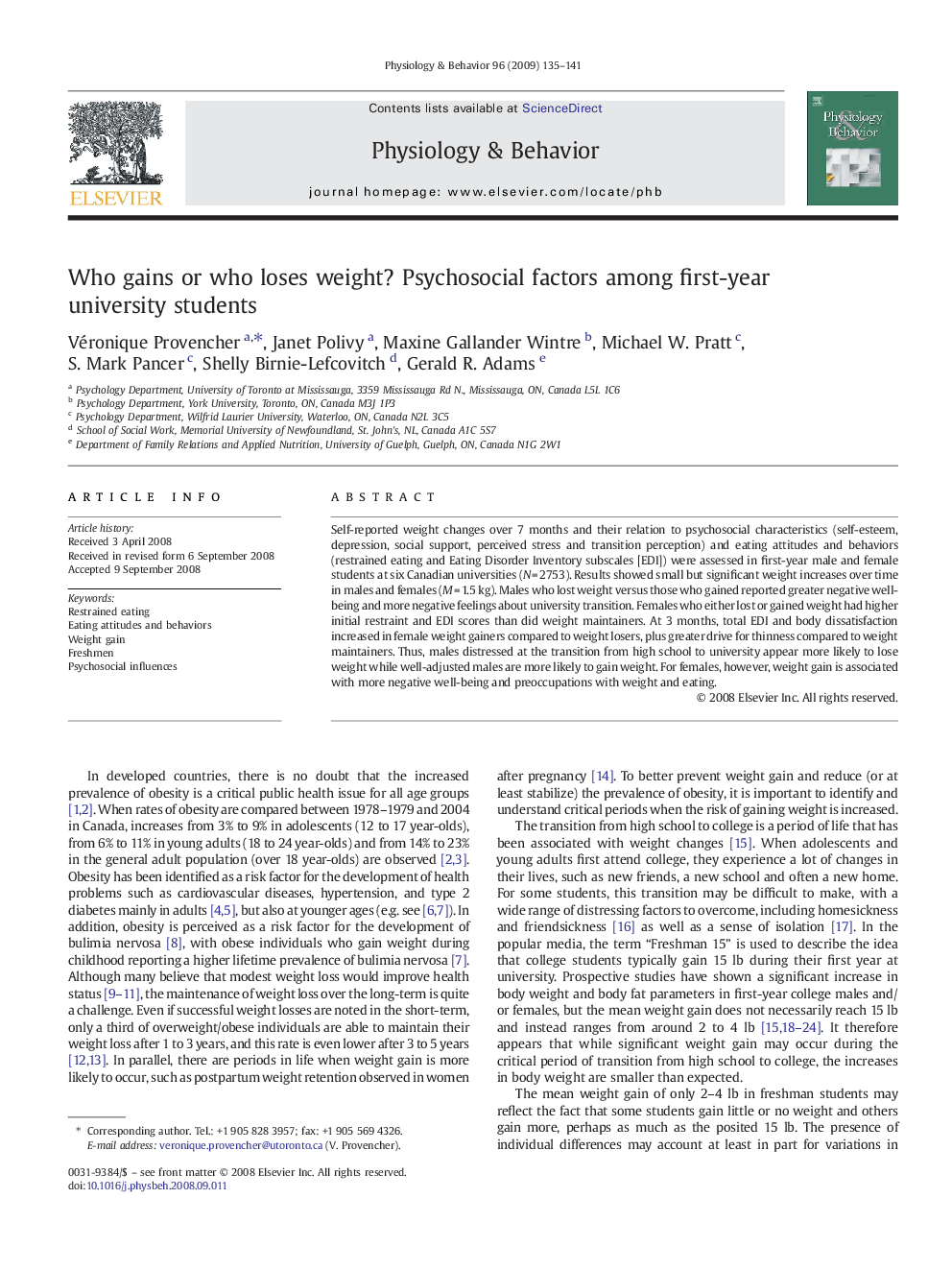| Article ID | Journal | Published Year | Pages | File Type |
|---|---|---|---|---|
| 2845853 | Physiology & Behavior | 2009 | 7 Pages |
Self-reported weight changes over 7 months and their relation to psychosocial characteristics (self-esteem, depression, social support, perceived stress and transition perception) and eating attitudes and behaviors (restrained eating and Eating Disorder Inventory subscales [EDI]) were assessed in first-year male and female students at six Canadian universities (N = 2753). Results showed small but significant weight increases over time in males and females (M = 1.5 kg). Males who lost weight versus those who gained reported greater negative well-being and more negative feelings about university transition. Females who either lost or gained weight had higher initial restraint and EDI scores than did weight maintainers. At 3 months, total EDI and body dissatisfaction increased in female weight gainers compared to weight losers, plus greater drive for thinness compared to weight maintainers. Thus, males distressed at the transition from high school to university appear more likely to lose weight while well-adjusted males are more likely to gain weight. For females, however, weight gain is associated with more negative well-being and preoccupations with weight and eating.
